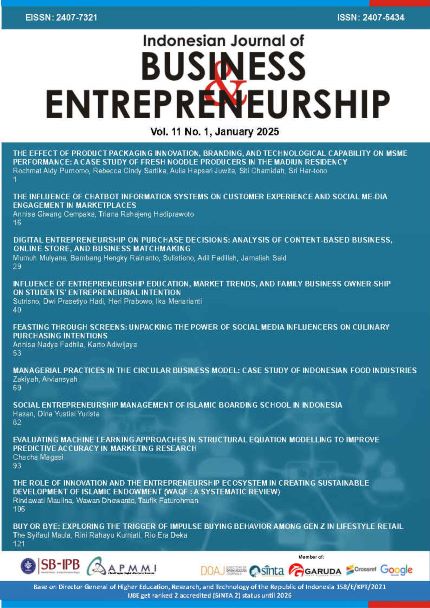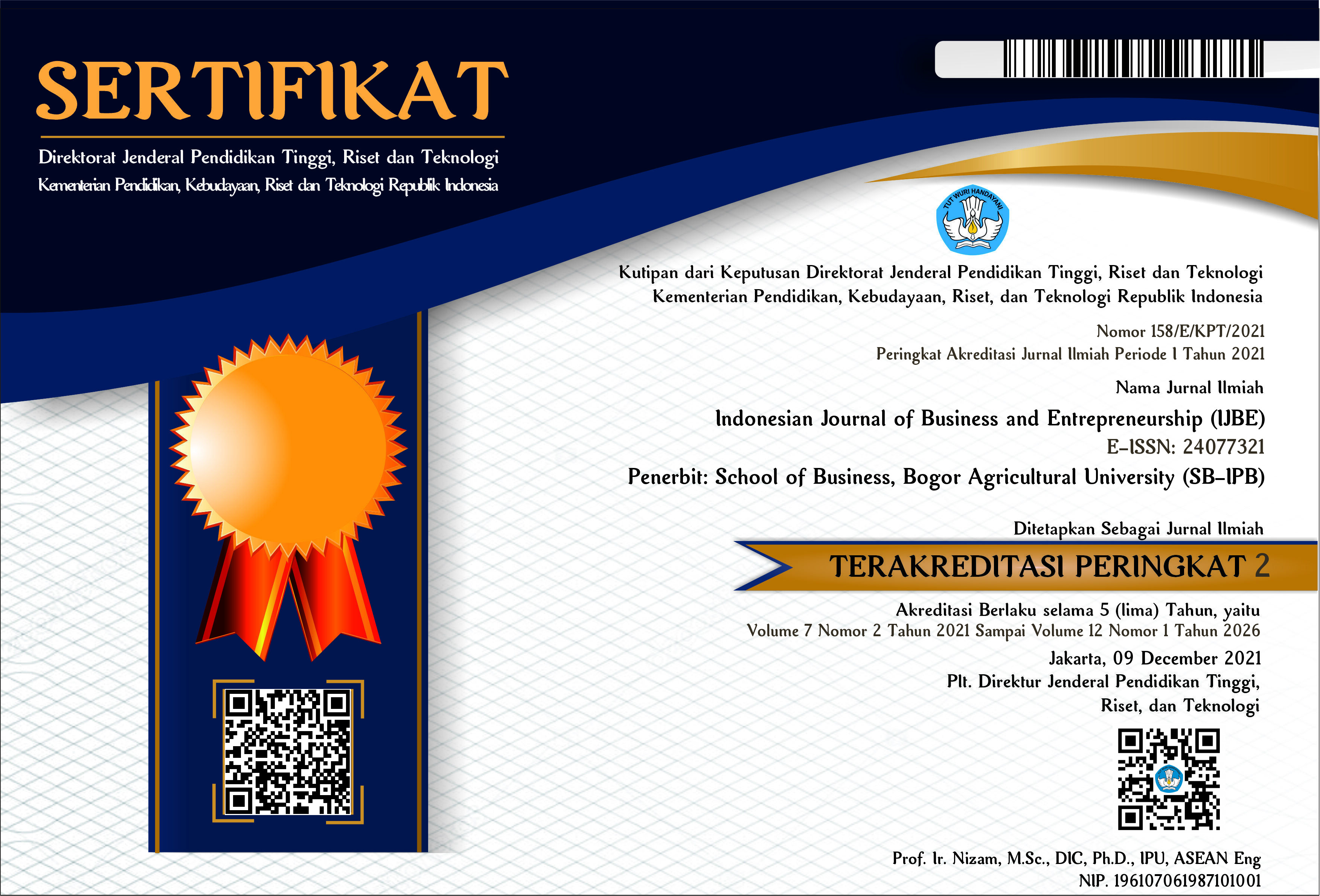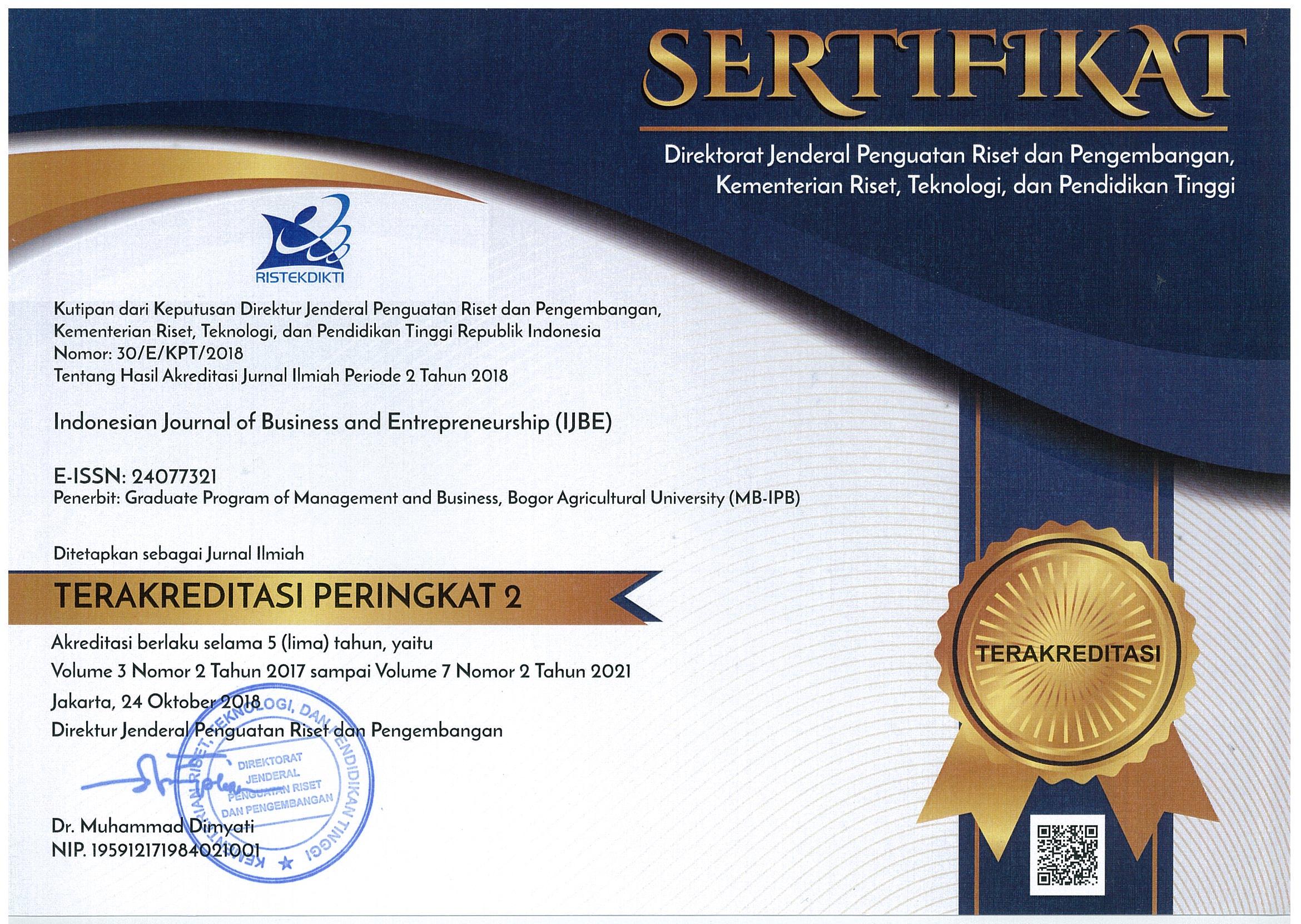Influence of Entrepreneurship Education, Market Trends, and Family Business Ownership on Students' Entrepreneurial Intention
Abstract
Background: In Indonesia, unemployment remains a significant challenge, especially among university graduates. Enhancing entrepreneurial skills is considered an effective solution to address the high unemployment rate. Entrepreneurship education at the university level has great potential to better prepare students for the competitive labor market.
Purpose: This study aims to analyze how entrepreneurship education, market trends, and family business ownership contribute to the formation of entrepreneurial intentions among students. Each of these variables is supported by relevant theories: human capital theory, market orientation theory, and social capital theory.
Design/methodology/approach: This study adopts a quantitative approach using the SEM-PLS method to explore the relationships between the relevant variables. The research sample was taken from 100 MSMEs in Semarang, using an online questionnaire as the data collection instrument.
Findings/Result: The findings in the analysis indicate that entrepreneurship education, market orientation, and family business ownership have a positive and significant impact on students' entrepreneurial intention through various relevant aspects.
Conclusion: Entrepreneurship education provides a foundation of knowledge and practical skills necessary for students to start and manage their own businesses. Market orientation helps students understand market trends and attractive business opportunities, increasing their interest and motivation to explore careers as entrepreneurs. Meanwhile, family business ownership provides students with direct experience in the business world, access to resources, and strong motivation to start their own ventures in the future. Further research using a qualitative approach and involving a larger sample size can provide deeper insights into the factors influencing students' entrepreneurial intentions from various contexts and backgrounds.
Originality/value (State of the art): This study stands out by integrating multiple factors entrepreneurship education, market trends, and family business ownership to provide a holistic understanding of what influences students' entrepreneurial intentions in Semarang. Unlike previous research, which often focuses solely on educational aspects, this comprehensive approach captures the interaction between internal and external influences, offering a more nuanced and practical insight into fostering entrepreneurship among university students.
Keywords: entrepreneurship education, market trends, family business, students' entrepreneurial intention








